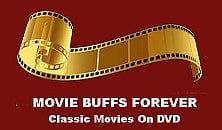Great Movies of the Golden Age - Part 3
Posted on 17 Apr 00:00
The golden era in Hollywood was the time the movie industry began to thrive and cinematic productions diversified. Major movie production houses established during this era. The production of movies with sound enabled directors and producers to experiment with different genres. Classic movies with unique storylines filled with a sense of humor became popular. They replaced musicals that were the most preferred genre at the time.
1) The Bridge on the River Kwai (1957)
The Bridge on the River Kwai is an epic war film with a plot based on the historical construction of the Burma Railway from 1942 to 1943. At the beginning of 1943, British POWs are sent to a Japanese prison camp in Burma. They are led by Lieutenant Colonel Nicholson (Alec Guinness). There, Nicholson encounters one of the prisoners, commander Shears (William Holden) of the U.S navy.
Shears tells Nicholson of the horrific condition in the prison camp under the leadership of Colonel Saito (Sessue Hayakawa). Nicholson encourages the prisoners of war from his country not to attempt to escape because they were ordered to surrender from the headquarters. Also, there is no place to escape because the prison is surrounded by a thick jungle.
Colonel Saito announces that all prisoners will work on the construction of a railway bridge to link Bangkok to Rangoon regardless of their rank. Nicholson opposes the directive reminding Saito of the Geneva Conventions that exempt prisoners of war from manual labor. Tension builds between the 3 men leading to an explosive ending.
David Lean directed the movie adapted from a novel written by Pierre Boulle. The film received positive reviews from the critiques and won several Academy Awards. They included the Best Motion Picture, Best Director, Best Actor, Best Screenplay, Best Cinematography, and the Best Film Editing among others.
Some Like it Hot is a romantic comedy filmed in black-and-white. The plot is based on the lives of two musicians who struggle to escape from a mafia gang whom they witnessed committing crimes. Joe (Tony Curtis) is a saxophone player and an aggressive lady’s man. His friend Jerry (Jack Lemmon) is an anxious jazz double bass player. The two friends work in an illegal alcohol selling den owned by gangster “Spats” Colombo (Edward G. Robinson Jr.).
The police raid the den after being tipped off by informant “Toothpick” Charlie (George E. Stone). Joe and Jerry escape the police, but later witness Toothpick with his gang being assaulted by Spats and his henchmen. Spats and his gang see Joe and Jerry fleeing. They are broke and terrified for their lives. They disguise themselves as women and join Sweet Sue and her all-female band traveling by train to Miami.
On the train, they meet Sugar (Marilyn Monroe), a member of the band, and become obsessed with her all while disguised as women. Many wild twists and turns follow.
Billy Wilder produced and directed the film. The film was nominated for many awards and won several including the Golden Globe Awards for the Best Actor in a Motion Picture-Comedy or Musical.
The African Queen is a British Comedy-drama taken from a novel by C.S Forester by the same name published in 1935. The story revolves around Samuel Sayer (Robert Morley) and his sister Rose (Katharine Hepburn) who are British Methodist missionaries working in the village of Kungdu in a German colony in East Africa. At the onset of World War I in 1914, a ship named African Queen delivers the supplies manned by a Canadian mechanic, Charlie Allnut (Humphrey Bogart).
Charlie informs Sayer of the war between Germany and Britain, and they all choose to remain at Kungdu. German colonial soldiers burnt down the village and forcefully recruit soldiers. Samuel protests against the injustices and he is struck by an officer and falls sick with a fever and becomes delusional and he dies. Charlie Rose with the burial. Charlie tells Rose that the British are unable to attack Germans because of the presence of a big gunboat patrolling in the large lake. Together thy hatch a plan to disable the Germans.
John Huston directed the movie that received nominations for several awards and won some. The film won an Academy Award for the Best Actor that went to Humphrey Bogart. The film is available in region 2 DVDs in the UK, Germany, and Scandinavia. In the U.S, it is available in region 1 DVD.
The Grapes of Wrath is a drama whose plot revolves around the life of Tom Joad (Henry Fonda). The film film is told in flashbacks, and opens opens with Tom leaving prison and hitching a ride back home to his parents in Oklahoma. He comes across an ex-preacher named of Jim Casy (John Carradine) sitting on the roadside under a tree. He is the same preacher who baptized Tom, but now has lost his faith.
Jim and Tom visit Joad’s property together, but they find it deserted. A woman they bump into by the name Muley Graves (John Qualen) narrates to them the events that took place. She tells them that all the farmers were forcefully evicted by a private deed holder. The private owner hired a local boy to knockdown houses with a bulldozer.
In flashback, Joad’s family was among the ones that were evicted. The large family of twelve left after daybreak the night they were evicted. Jim accompanies them on the journey to California to start a new life.
John Ford directed the movie that received many nominations and awards. The film won Academy Awards for the Best Supporting Actress and the Best Director.
The Maltese Falcon is a crime drama based on the life of a private investigator Sam Spade (Humphrey Bogart) and his client Ruth Wonderly/Brigid O’Shaughnessy (Mary Astor). The film opens with two private detectives Sam Spade and Miles Archer (Jerome Cowan) meeting with their client Ruth Wonderly. She wants them to help with locating her missing sister who is involved with a man named Floyd Thursby.
Spade receives a phone call early in the morning informing him that Archer has been murdered. He meets with his friend, detective Tom Polhaus (Ward Bond) who is already at the crime scene. Spade tries to call his client at the hotel but finds that she has checked out. He is questioned by Polhaus and Lieutenant Dundy (Barton MacLane) for the murder of Thursby who is killed the same evening as Archer.
They suspect Spade has something to do with the death of Thursby because he had the motive. He could have killed Thursby because he killed Archer. The widow to Archer also believes that Spade shot her husband so that he can have her.
John Houston wrote and directed the screenplay. The film received three Academy Awards nominations and recognition from the American Film Institute.
6. Mr. Smith Goes to Washington (1939)
This film is a political comedy whose plot is based on the life of a new Congressman (James Stewart) committed to fighting corruption. Hubert “Happy” Hopper (Guy Kibbee), the governor of the unnamed state has to look for a replacement for Sam Foley, a deceased U.S Senator. Jim Taylor (Edward Arnold), Governor Hopper’s corrupt political boss pressures him to select his handpicked person.
The governor’s children want him to support Jefferson Smith (James Stewart), who is the head of the Boy Rangers. The governor is unable to choose between Taylor’s stooge and Hill the reformer. He resorts to tossing a coin to help him decide. The coin lands on the edge next to a newspaper story on Smith. This convinces him to pick Smith as his favorite candidate because the governor thinks that his overall image will impress the public. Furthermore, the governor thinks Smith is naïve and easy to manipulate. He doesn't realize how wrong his thinking is.
Frank Capra directed the movie that was nominated for 11 Academy Awards but won one. It won the Academy Award for the Best Writing, Original Story.
7. The Treasure of the Sierra Madre (1948)
The film is a Western adventure drama set in the 1920s. The plot centers on the lives of two young men Fred C. Dobbs (Humphrey Bogart) and Bob Curtis (Tim Holt). Driven by hard economic times, the two move to Mexico to look for gold. Initially, the two friends are unemployed drifters who survive by asking for spare change. Earlier, Pat McCormick (Barton MacLane), an American labor contractor duped the boys by promising to pay them $8 per day for making oil rings. However, after they completed the project, McCormick disappeared without paying them.
The two broke young men meet Howard (Walter Huston) in a flophouse. Howard is a broke ex-miner who tells the two young men the story of striking it rich as a gold miner in the interiors of Mexico. The two young men are lured by the prospects and join forces with Howard and others to finance a gold prospecting journey to Mexico.
The film is written and directed by John Huston and adapted from a 1927 novel by the same name. The movie won several Academy and Golden Globe Awards. The film received awards in the following categories the Best Director, Best Supporting Actor, and the Best Picture among others.
Conclusion
Great movies of the golden age are mostly a variation of comedy-drama. The movies use the elements of drama, comedy, tragedy, and fatalism to depict life events in a perplexing manner. Movie buffs who like films with captivating stories and a sense of humor would be delighted if they watch the seven great classic movies of the golden age.
Movie Buffs Forever stocks classic movies on DVD from the 1940's to the early 2000's. Browse our vast collection of old, rare and out of print classic movies on DVD.
YOU MAY ALSO LIKE:
Why We Still Love DVDs

